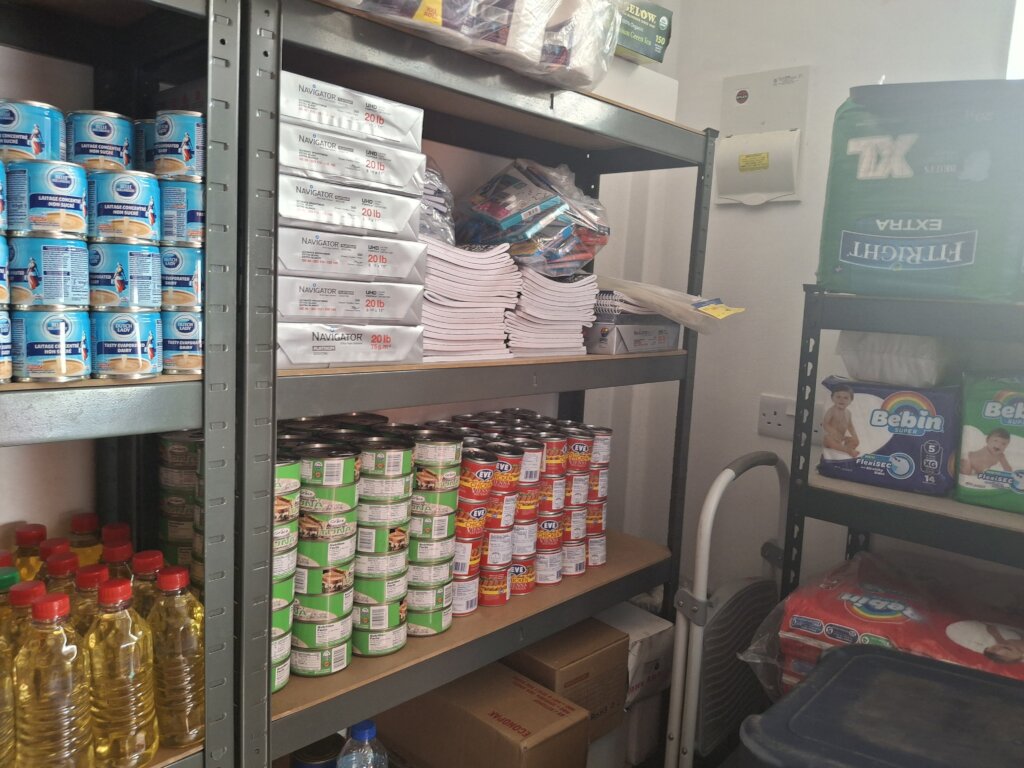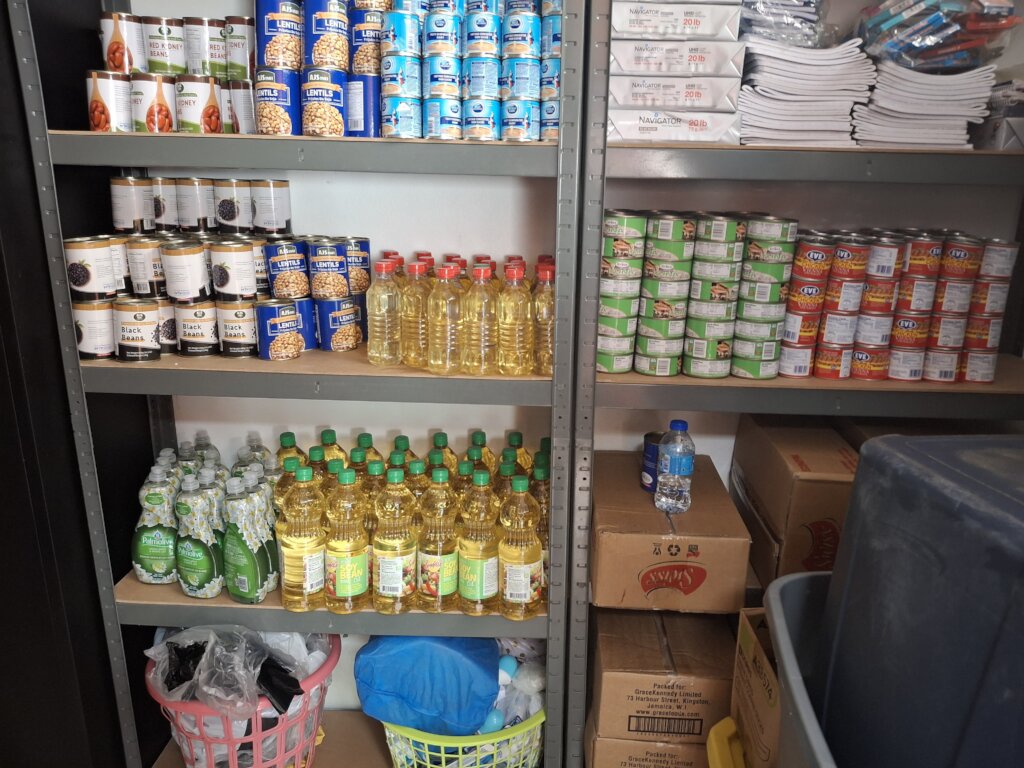By Catherine Sealys | President & Lead Women Support
Our client clutched her toddler’s hand as they stepped into the pantry. Her face was etched with sadness, and her heart was heavy with worry. She had recently fled her home due to domestic violence and was unsure how to explain to her children that there wasn’t enough to eat. The shelves, stocked with essentials and treats, seemed like a miracle. When we handed her a bag and invited her to take whatever she needed, her eyes filled with gratitude. She didn’t have to ask or explain her struggles; our volunteers greeted her with warmth and guided her to the food she needed. For the first time in weeks, she felt the crushing weight of her anxiety begin to lift. Here, there was no judgment—only kindness and understanding.
As she packed a bag with rice, flour, sugar, cornmeal, oats, milk, canned tuna fish, lentils, oil, ketchup, coffee, tea bags, cocoa powder, canned beans, eggs, frozen beef burgers, frozen potato wedges, butter, corn on the cob, toiletries, and more, tears welled up in her eyes. She imagined her children’s faces lighting up when she cooked a warm meal that night. The simple act of being able to provide—without begging or bartering—restored a piece of her dignity. She thought of the countless nights spent worrying about empty cupboards and her children going to bed hungry. Now, she felt seen, valued, and supported. The pantry wasn’t just giving her food; it was giving her hope.
That evening, two volunteers visited her at the safe house. As she served a hearty meal to her children, their laughter filled the kitchen. She watched them eat with a mix of joy and sorrow, vowing to work toward a brighter future. The food pantry had done more than fill their stomachs; it had given her the strength to keep going. She knew there were others like her, struggling silently, and she promised the volunteers that one day she would give back to the community that had given her so much. For now, though, she was grateful to have one less worry, even if just for today.
In this season of giving, we extend our heartfelt thanks to the donors and supporters of Raise Your Voice Saint Lucia. Your generosity makes stories like her possible. Your contributions provide more than food and essentials; they offer hope, dignity, and a chance for a brighter tomorrow. Together, we are making a difference, one family at a time. Thank you for standing with us and for bringing light to those in need this holiday season.
By Catherine Sealys | President
By Catherine Sealys | President
Project reports on GlobalGiving are posted directly to globalgiving.org by Project Leaders as they are completed, generally every 3-4 months. To protect the integrity of these documents, GlobalGiving does not alter them; therefore you may find some language or formatting issues.
If you donate to this project or have donated to this project, you can receive an email when this project posts a report. You can also subscribe for reports without donating.
Support this important cause by creating a personalized fundraising page.
Start a Fundraiser

